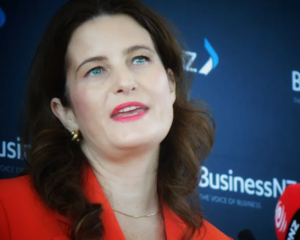Genesis was likely to be listed early this year, despite an overwhelming majority of voters opposing asset sales in a referendum held last last year.
Prime Minister John Key dismissed the referendum as a political stunt and confirmed Genesis would be sold down.
Mr Curtayne said Genesis would have to be sold off more cheaply and with a good yield to find investor support.
''It is crowded in that particular sector of the market. You can buy Mighty River Power below listing price and Meridian at a good price. We already have Contact and TrustPower.
''Who would want to buy an electricity company? The last listings haven't gone well and investors are fed up with the sector. There will be IPOs in other interesting sectors.''
One of the problems Genesis faced was owning the large Huntly coal-fired electricity plant, which was in a closing-down phase, Mr Curtayne said.
The New Zealand economy would grow strongly this year but electricity companies would not participate in that growth - they were not exposed to the good times, Mr Curtayne said.
Already, deals were being offered by some companies to get customers to commit to three years on a fixed price because they believed energy prices would fall over that time.
Electricity consumers could expect many discount offers this year. Companies would be reluctant to drop their headline price, so would be providing other incentives, he said.
Mr Curtayne picked technology as a sector to watch this year, although some low-quality stocks would come up for sale.
As the economy improved, the IPO cycle picked up and people jumped in. Investors had to be cautious as some companies would try to emulate the success of Xero.
There would also be some exciting entries to the market from the general industry sector, which was exposed to the growth in the economy.
Smaller companies would look to the secondary market - the NZAX - where reporting requirements were less strict.
However, it was likely that some companies in the $100 million to $120 million market capitalisation range would list on the main NZX board.
Better pricing and the fact the NZX had done well over the past two years were encouraging both companies to list and investors to buy, Mr Curtayne said.
''There is a lot more confidence and plenty of money around. Term deposits are still at an all-time high, despite the extra money going into shares.''
Fund managers such as Milford, which were not strong on the electricity sector, had to find other places to put the money coming in from term deposits.
''We will be looking for companies with exposure to the growing economy or with prospects for growth. Large-cap companies may still do well but this is an attractive time for midsize companies,'' Mr Curtayne said.












